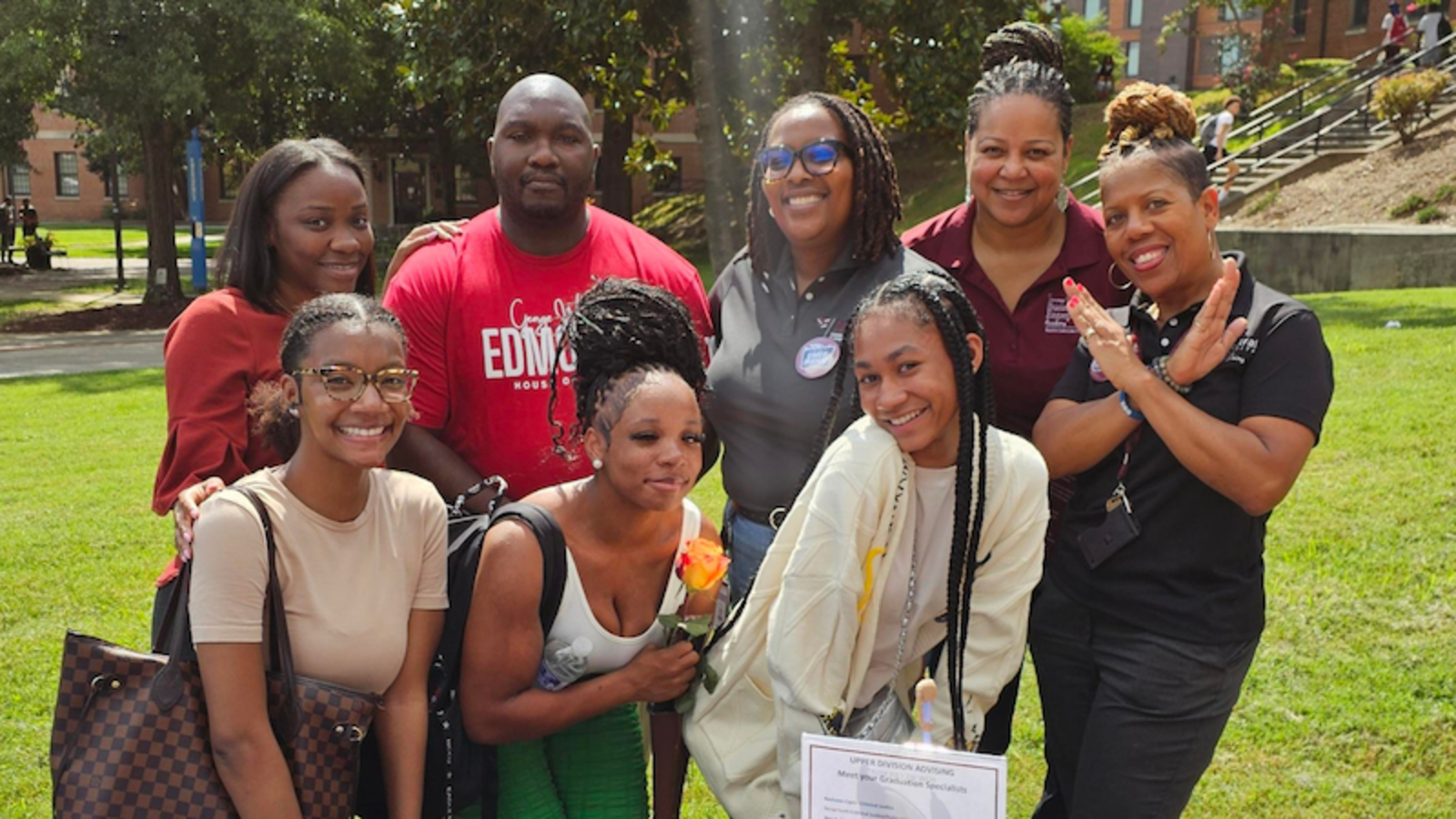If you are an undergraduate who plans to go to medical or dental school, you are probably majoring in biological and biomedical sciences. And if you have some sort of challenge that could prevent you from earning a bachelor’s degree, you have probably spoken to Shynese Hockaday.
Hockaday is a graduation specialist, one of ten hired by North Carolina Central University (NCCU) in 2023. The overarching aim of graduation specialists is to help juniors and seniors graduate within four years. Doing that requires advising students on a host of challenges.
“Some students will come by if they are having difficulty in one of their classes,” Hockaday said. “Usually when they come, they want to drop the class. I remind them, by the time they get into the department, they are taking courses they need for graduation (in their degree program).”
Each of the graduation specialists focuses on students in a single academic department. In the Department of Psychology, Carole Montgomery has a caseload of 106 students with a range of challenges.
“It might be family issues or work preventing them from taking classes,” Montgomery said. “For family issues, I encourage them to go to the counseling center. Sometimes it is financial. We advise them to talk to financial aid advisors.”
The challenges might not be of an academic nature. Montgomery had a student who was a father and was about to become the primary caretaker of his son. The student’s first challenge was to get his son enrolled in school followed by reconfiguring the student’s NCCU schedule.
Prior to graduation specialists, faculty advised juniors and seniors. “(Hiring graduation specialists) allows faculty to act as mentors and focus on their area of expertise,” said Dawn Matthews, Ph.D., associate dean of academic planning and student success in University College. Matthews was part of a team that developed advising structure, position description and training for the graduation specialists.
So why graduate in four years? Matthews explains that first, it is the expectation of the University of North Carolina System office and what the System bases on how much money it supplies universities. Second, students spend less money if they complete a bachelor’s degree in four years rather than longer.
Departments at NCCU with the largest enrollment received graduation specialists. The College of Arts, Social Sciences and Humanities has five, the College of Health and Sciences has four and the School of Education has one.
A bit over $1 million for the graduation specialists came from federal Title III funds.
Being a graduation specialist requires extensive knowledge of the academic department each works in and an understanding of university resources.
Over in the School of Education, graduation specialist Wendy Thompson had a student who had maxed out on her financial aid but still had one term to finish her degree. Thompson referred her to a colleague who evaluated the student’s credits.
“We looked at her credits and recommended a (different major) that would get her out without extra financial burden,” Thompson said.
